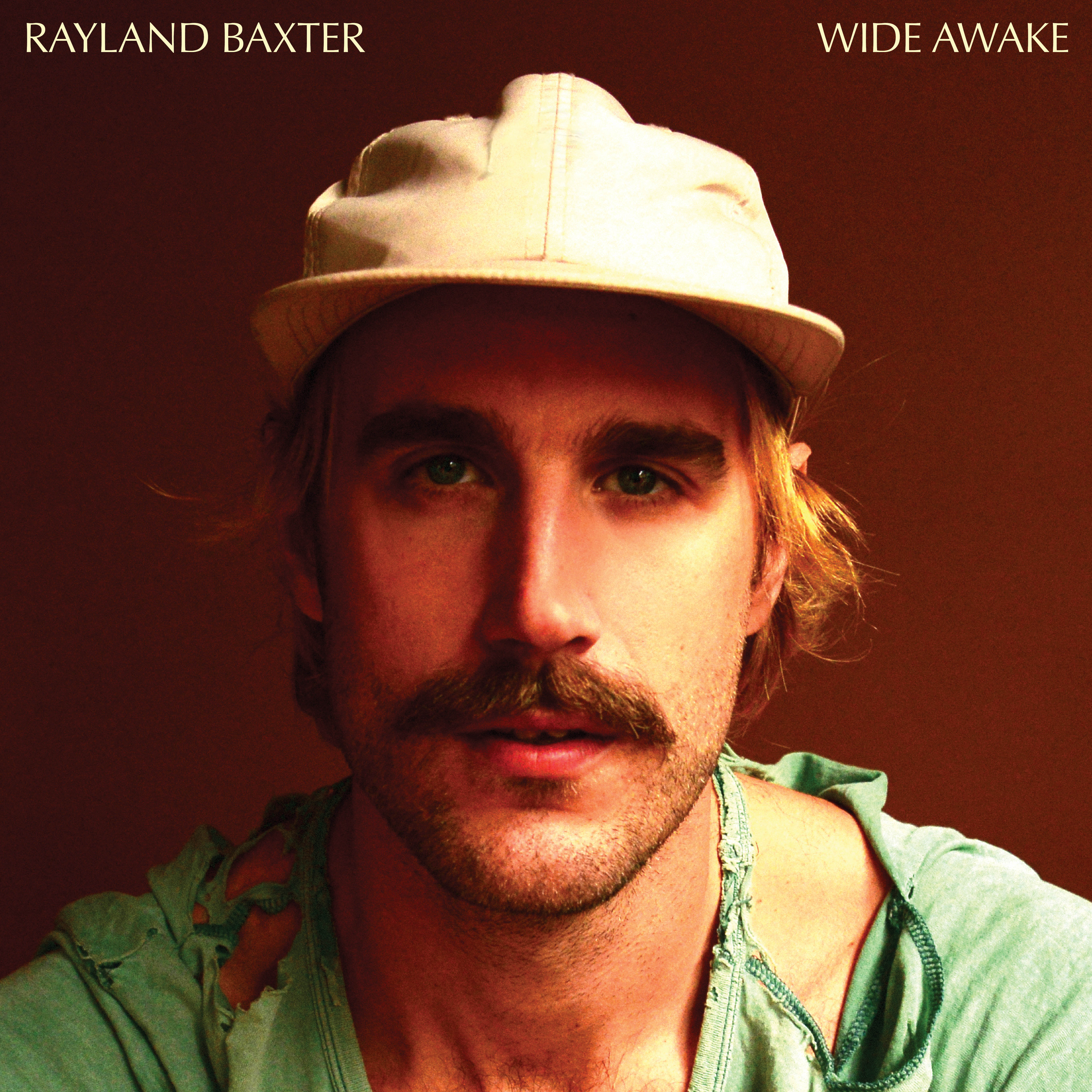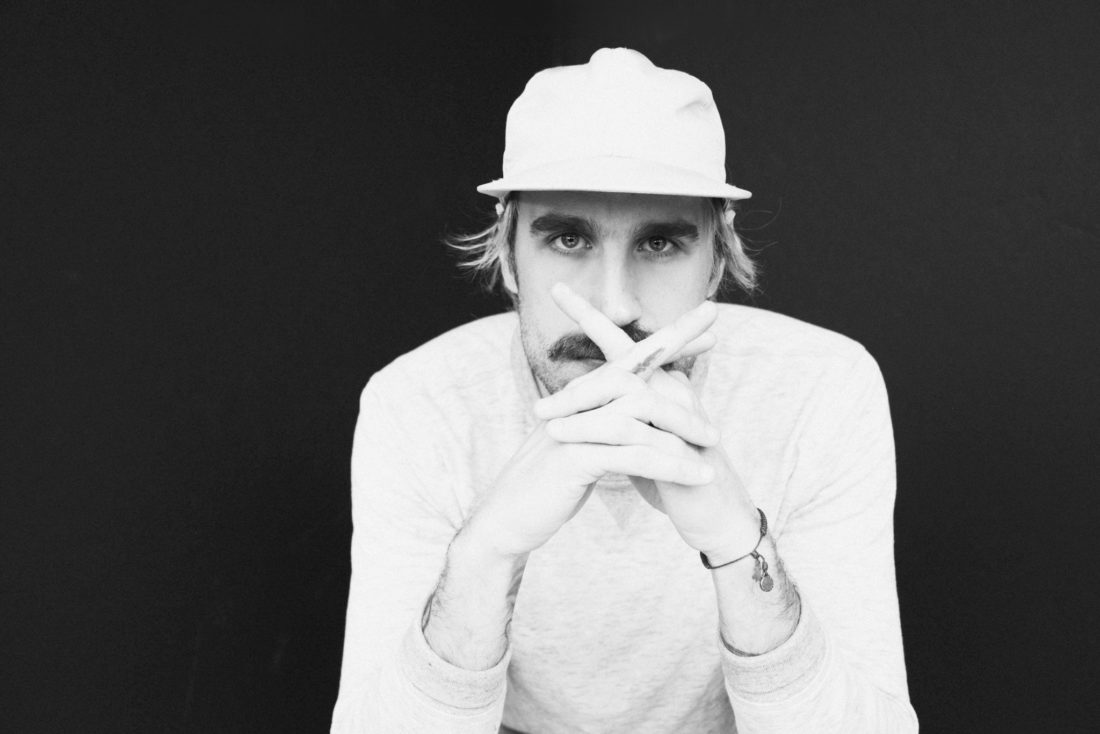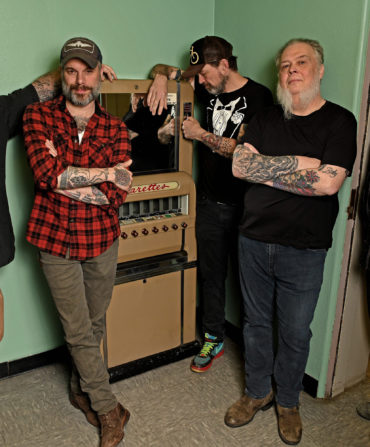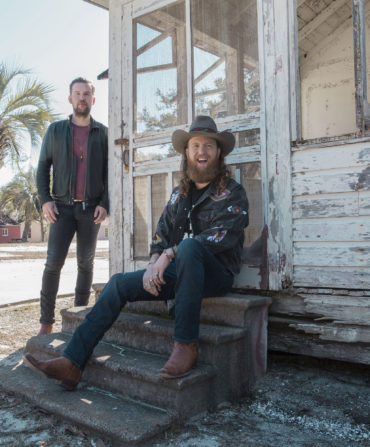If you’ve never heard of Nashville singer-songwriter Rayland Baxter, get to know him on his newly released third album Wide Awake, which he wrote from within a former rubber factory. “Thunder Sound is this incredible recording studio in Franklin, Kentucky, that has been put together wire by wire and knob by knob in an old beast of an abandoned building,” he says.
Baxter was born in Bon Aqua, Tennessee, and is the son of Bucky Baxter, a pedal steel guitar player who has performed alongside Bob Dylan, Ryan Adams, Steve Earle, and R.E.M. Rayland Baxter’s two previous releases (2012’s Feathers & Fishooks and 2015’s Imaginary Man) garnered him fans for his clear voice and earnest lyrics. They also got him gigs at Bonnaroo and opening for folk-rock titans the Lumineers. But it’s Wide Awake where Baxter matures, gets a little more experimental in ten tightly written songs, and brings a touch of funk to hooky melodies.
We caught up with Baxter before he headed out on tour with stops in Birmingham, Atlanta, and Richmond (some shows will include his friend, the Austin, Texas-based artist Shakey Graves).

What was the process of writing this album like?
Back when we ended the Lumineers tour [Baxter opened for the band in 2016], I got in my car and drove to Franklin, Kentucky, just fifty minutes north of Nashville. My buddy Billy owns a studio there in an old rubber factory. I moved into this little side room, wheeled in a Wurlitzer and brought my acoustic guitar, and started going through voice notes I had recorded on my phone.
It started looking like a crazy man’s room with blankets on the windows, cigarettes in ash trays, beer cans, water bottles, red wine bottles, papers everywhere, notes on the walls. I didn’t sleep much and I would forget hours of time. Sometimes I wrote five different bridges for every song. My notes were scribbles, but writing was the one subject I could always excel in. I know the draft process and I could clean up my notes, cross through a bunch of it, and organize. It was a magical time.
You came out of there with a bunch of songs…
I had fifty songs when I left. I demo’d thirty of them, picked fifteen to record, and then kept just ten for the album. Some are a little hookier than others, and there is just an invisible charm that some of the songs have. With anything you create, whether you’re a short story writer, a sculptor, or you build canoes in a woodshop, some of your creations shine a little more than the others. Some of these songs winked back at me saying, You’re going to record me, man. So I did.
You’ve got to be excited to start touring with new material.
There are ten songs and all of them have their own flavor and their own color. We’ll see what happens when we put a band to them—I haven’t strummed an acoustic at a show in a long time. I’ll have to get back into that. I’m excited to see the reaction people have to “79 Shiny Revolvers.” It’s got a John Lennon 70s sound. And then “Amelia Baker” is a rocking song from my Imaginary Man vein. I’m excited to play every single one of the new songs and make them sound different from how I recorded them.
The album is called Wide Awake. What does that phrase mean to you?
I’m good friends with Shakey Graves, and his new album is called Can’t Wake Up. I wrote a couple of the songs with him on that album and there were times between when we were writing or playing together when he’d stop to sleep and I’d be waiting for him to wake up. It reminded me of this painting my dad gave me when I was a kid. It’s of a son sitting next to a dad in a cabin. The son was anxious to go fishing and the dad was still sleeping in bed. You can see a lake next to the window. It makes me think of how my eyes are open right now, and how I might love sleeping in, but I’m really wide awake.
What was it like to have your dad on the album?
He played on “Let It All Go, Man.” I recorded that in California but I brought the track to Nashville and did overdubs with him. He thinks it’s the culmination of the last ten years of me listening to Bob Dylan and traveling. “Let It All Go, Man” is hopeful. I don’t know what it is but when I sing one sad lyric, people are like Why are you so sad boy, you made me cry. I don’t know, I’m just singing. I’m really always hopeful, even if I have heartbreak in my voice.
Purchase or stream Wide Awake here.








